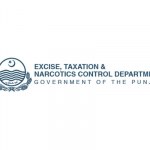Lahore: Prime Minister (PM) Imran Khan on Wednesday approved a draft of the local government (LG) law that aims to empower elected representatives at the grassroots level, a news source reported.
Punjab Local Government Secretary Saif Anjum gave briefings on the proposed law to the prime minister, members of the provincial cabinet, and the parliamentary party.
Read: New local government system to be introduced
The provincial government hopes to promulgate the Local Government Act and Panchayat and Neighbourhood Councils Act by the end of next month. In the wake of the new law, the incumbent local government setup will cease to exist.
Punjab Law and Local Government Minister Basharat Raja said that the proposed law would introduce two-tier administrative system: Panchayat at rural level and Neighbourhoods Council at the lowest level of local government in urban areas.
Read: Consensus on local body system emphasised
Under the said law, the district councils would be abolished in the rural local governments and a Tehsil Council will be created at each tehsil level. This will raise the number from 35 districts to 138 tehsils across the province.
Similarly, a Panchayat system for each Mauza (administrative districts comprising one of more settlements) would replace existing union councils; introducing 22,000 Panchayat instead of 3,281 union councils.
Read: New structure for local bodies approved
The urban local government setup would comprise Metropolitan Corporation consisting of four cities: Lahore, Gujranwala, Faisalabad and Rawalpindi, as well as municipal corporations for eight cities: DG Khan, Multan, Sargodha, Sahiwal, Sialkot, Murree, Bahawalpur and Gujrat.
The government plans to hold the Panchayat and Neighbourhood Councils elections in November this year and local government elections in May 2020. The Panchayat elections will be non-partisan in nature and the candidate securing highest votes will be elected as the chairperson.
Elections for the urban and tehsil councils will follow a party-based model, whereas mayor and chairpersons would be elected through direct election. Moreover, the members will be elected on a panel proposed by party on a proportional basis.






